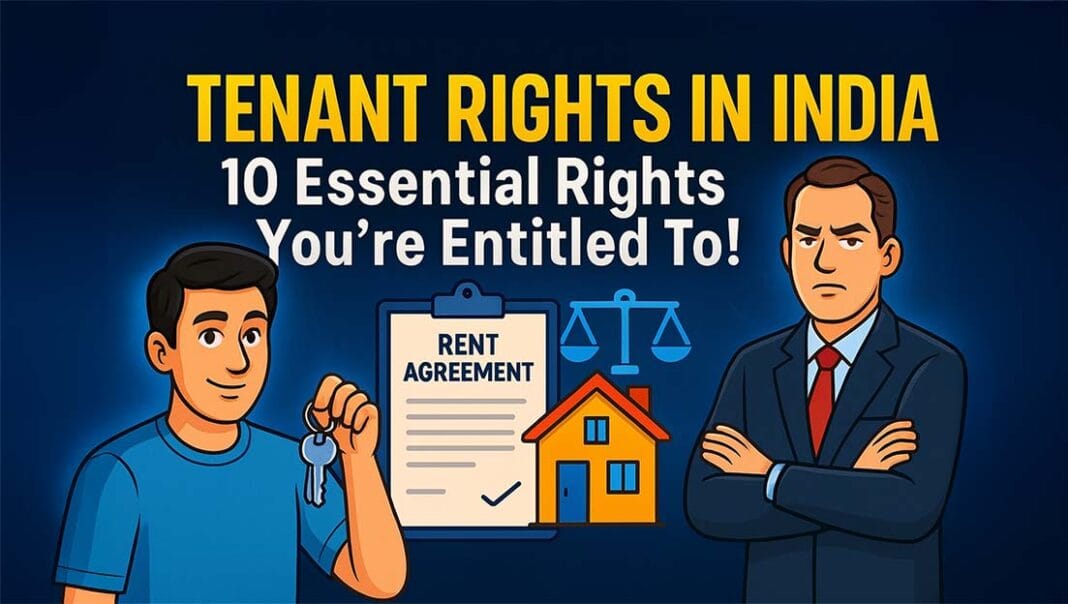Here’s a breakdown of the 10 key legal tenant rights in India everyone must know:
Renting a property in India—whether for residential or commercial purposes—comes with legal protections to ensure fairness and security for tenants. However, many renters are unaware of their rights, leading to unnecessary disputes or exploitation.
1. Right to a Written Rental Agreement
Always insist on a written rental agreement that clearly states the rent amount, lease duration, security deposit, and maintenance responsibilities. Verbal agreements hold little weight in legal disputes.
2. Right to Safe & Habitable Living Conditions
Your landlord must provide a structurally sound property with access to clean water, proper sanitation, and essential utilities. If the property becomes uninhabitable, you can demand repairs or withhold rent.
3. Right to Privacy
Landlords cannot enter your rented premises without prior notice, except in emergencies. You have the legal right to peaceful enjoyment of the property.
4. Right to Basic Amenities
Essential services like water, electricity, and waste disposal must be maintained as per the rental agreement. If these are disrupted, you can request repairs or a rent reduction.
5. Right to Fair Rent & Protection from Unreasonable Hikes
Rent increases must comply with state-specific Rent Control Acts. If your landlord demands an excessive hike, you can challenge it legally.
6. Right to Rent Receipts
Always demand a receipt for rent payments. This serves as proof of payment and protects you in case of disputes.
Also read: Starting Business in India? 10 Legal Must-Knows for Every Entrepreneur
7. Right to Security Deposit Refund
Your security deposit must be returned at the end of the tenancy, provided there’s no damage beyond normal wear and tear.
8. Right Against Unlawful Eviction
A landlord cannot force you to vacate without a valid reason (such as non-payment of rent or illegal use of property) and proper legal notice.
9. Right to Lease Renewal (If Specified in Agreement)
If your rental agreement includes a renewal clause, you have the right to extend your lease under mutually agreed terms.
10. Right to Legal Recourse
If your landlord violates any of these rights, you can file a complaint with the Rent Control Authority or approach a consumer forum/court for justice.
Knowing your rights as a tenant empowers you to stand up against unfair practices. Always review your rental agreement carefully, keep records of payments, and seek legal advice if needed.
Also read: Child Custody Laws: 7 Essential Truths About Who Gets Custody After Divorce


